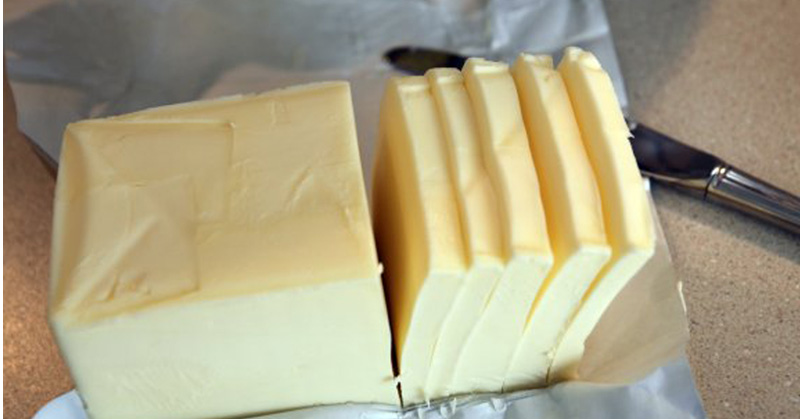Let’s start with this: Saturated fat is good for you.
 I know, I know, this isn’t what you’ve heard in the media or from many high profile health-types. The basic formula we’ve been taught is saturated fat = bad. This over-simplistic conclusion is based on the following logic: dietary consumption of saturated fat and the cholesterol that often comes with it leads to heart disease.
I know, I know, this isn’t what you’ve heard in the media or from many high profile health-types. The basic formula we’ve been taught is saturated fat = bad. This over-simplistic conclusion is based on the following logic: dietary consumption of saturated fat and the cholesterol that often comes with it leads to heart disease.
This argument is the essence of what’s called the Lipid Hypothesis, a theory proposed originally by Ancel Keys in the 1950s and eagerly adopted by nutritionists, the American Heart Association, and the medical community at large.
Trouble is, the theory was wrong. And has been proved wrong in study after study. How this incorrect theory gained such popularity and has been so difficult to shake is a story unto itself, which I’ll let Sally Fallon and Dr. Mary Enig explain in their excellent paper, The Oiling of America.
It turns out that saturated fat – yes, even saturated fat that comes from animal sources – plays many important roles in your body and health. For example:
- It’s is a key component of your cell membranes, giving them structure. In fact, 50% of your cell membranes are made up of saturated fat.
- It’s your heart’s preferred fuel, which is why the fat around your heart is highly saturated.
- Certain types of saturated fats have antimicrobial and antiviral properties, and strengthen your immune system.
- Saturated fat decreases lipoprotein (a), a factor strongly correlated to the risk of heart disease. This means saturated fat decreases your risk of heart disease.
- Saturated fat protects your liver from damage due to medications and alcohol. Yes, that’s why after a debaucherous night the thought of a fatty meal is so appealing. Your body is protecting itself.
- Saturated fats are very stable and thus protect highly unstable unsaturated fatty acids both outside your body (when cooking with heat) and inside your body. Further, saturated fats help your body make use of essential fatty acids.
Let’s not forget that fat makes food taste good, keeps you fuller longer, and is the source of that consistent energy we all want.
The important thing to consider when eating any type of fat, saturated or not, is its quality. Toxins accumulate in fat, so consume only those fats that come from healthy animals fed appropriate diets and living happily outdoors. Butter or meat from grass-fed cows and eggs from pastured chickens are two great examples.
 To incorporate healthy saturated fats into your diet, use them for cooking. We use butter, ghee (clarified butter), coconut oil, and occasionally lard for all our cooking. Save the olive oil and the delicate nut/seed oils for salad dressings and sauces put on the food after it’s cooked.
To incorporate healthy saturated fats into your diet, use them for cooking. We use butter, ghee (clarified butter), coconut oil, and occasionally lard for all our cooking. Save the olive oil and the delicate nut/seed oils for salad dressings and sauces put on the food after it’s cooked.
And most of all, enjoy it! What fabulous news that something as tasty as butter isn’t the bane of your healthful existence, but an integral part of it.
If this subject piques your interest and you’re curious to learn more, here’s some further reading I highly recommend:
The Truth About Saturated Fat by Dr. Mercola
Know Your Fats by Dr. Mary Enig
The Coconut Oil Miracle by Bruce Fife




Margaret
So greatful for your site and blog. There is so much controversy out there even among the “experts” . It is hard to find sound, scientific, advise, I assume partly because it takes a lot of work to research all these things and stay current. thank you so, so, much for what you do, so the rest of us can at least attempt to do the right thing to be healthy.
P.S. All this and good looking too, what a blessing.
Interesting article. I was just wondering are there any “bad” or worse oil. You mention butter and ghee does that mean things like sunflower and vegetable oil and less good for you?
@Ruth – yes, you definitely want to stay away from vegetable oils, especially for cooking. Almost all of them have been highly processed and are already rancid when you buy them (you just can’t smell it because most processors use deodorizers and bleaches to hide the smell – nasty!) The only vegetables oils I’d ever recommend are those from organic sources, cold-pressed, and stored in dark glass jars. And they should NEVER be used to cook with. Check out this post: https://www.eatnakedkitchen.com/eatnaked/2011/04/12/smokin-hot-or-unsafe-is-cooking-with-grape-seed-oil-a-good-idea/ to see why.
Hi, I have been very healthy and eating healthy diet. Suddenly it tried to try to add all what you mentioned to my diet. I switch toehold fat yogurt, using coconut oil for all my cooking and baking , using heavy cream for my coffee. And when I went for my regular check up my bad cholesterol was high for the first time in my life but my ratio is still good. So now I have to change to low fat and
Stay away from all saturated fat. Can you elaborate in my case that I shared with you. And I exercise daily and do intermittent fasting too. So it’s real puzzling to me when I tried to follow the recipe you suggested.
There are so many different pieces to this puzzle, it’s impossible to know without looking at your full diet history, lab history, etc. I would need to know specific numbers and do a full intake. That said, some people are more sensitive to saturated fats, which doesn’t necessarily mean you want to go low-fat, but just keep it in more moderation and then have those lipids re-assessed. There are many different factors that affect lipid balance, however, and this is just one piece of the puzzle.